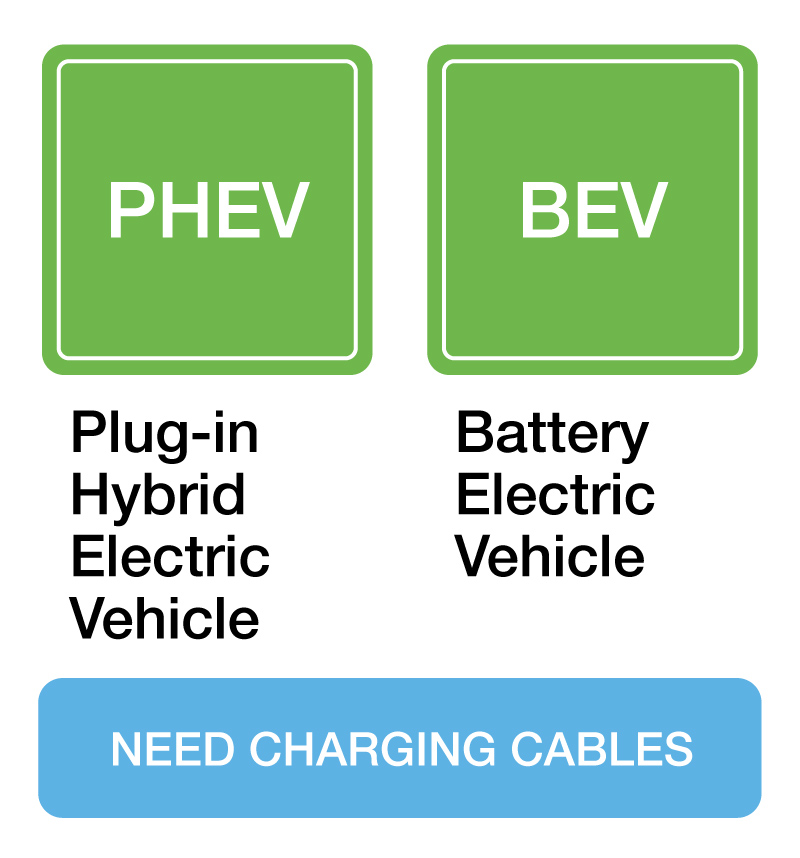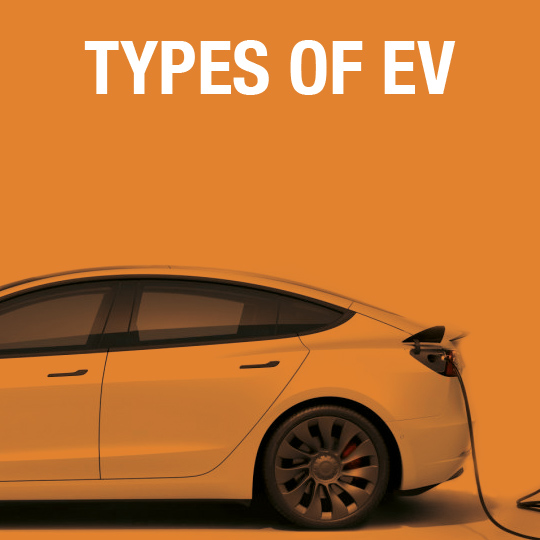A guide to EV Charging
There are four main types of electric cars:
- Plug-in Hybrid Electric Vehicle (PHEV)
- Battery Electric Vehicle (BEV)
- Hybrid Electric Vehicle (HEV)
- Mild Electric Hybrid Vehicles (MHEV)
Plug-in Hybrid Electric Vehicles (PHEV) and Battery Electric Vehicles (BEV) will need a charging cable.
For more information on the types of EV go here.
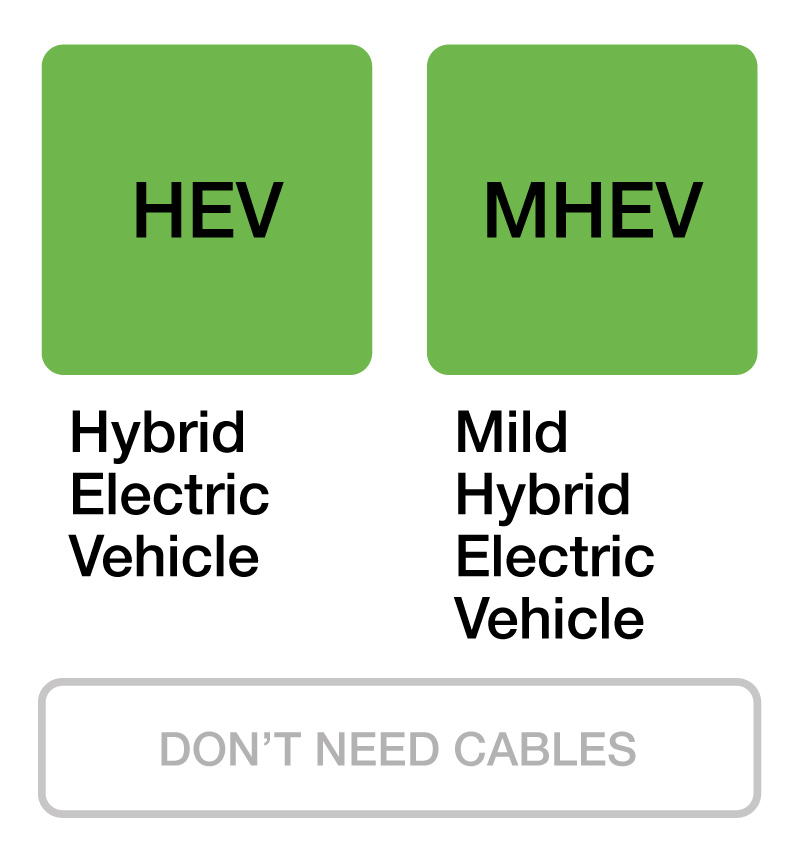
Charging your EV
Charging your EV is relatively simple – plug in and wait for your battery to fill up. But the number of connectors, cables and power supplies can be confusing. Depending on where you are charging, and which car you have, you will need a different charging kit.
What EV charging solution do I need?
There are several types of charging cables for EVs: not all will work with all electric cars.
Not sure which charging cable your car needs? Find out here.
There are three main things you need to understand when choosing your charging cable:
- Do you need a type 1 or type 2 connector?
- Which type of cable do you need?
- Which power supply will you be charging from?
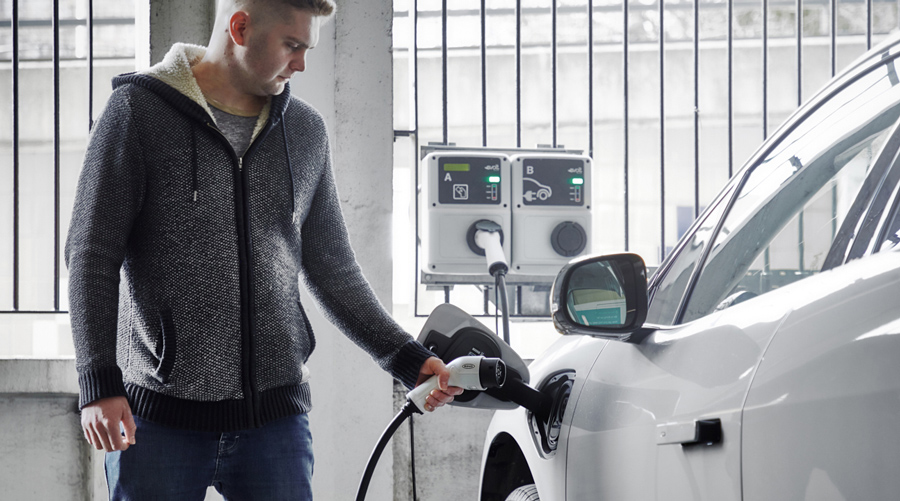
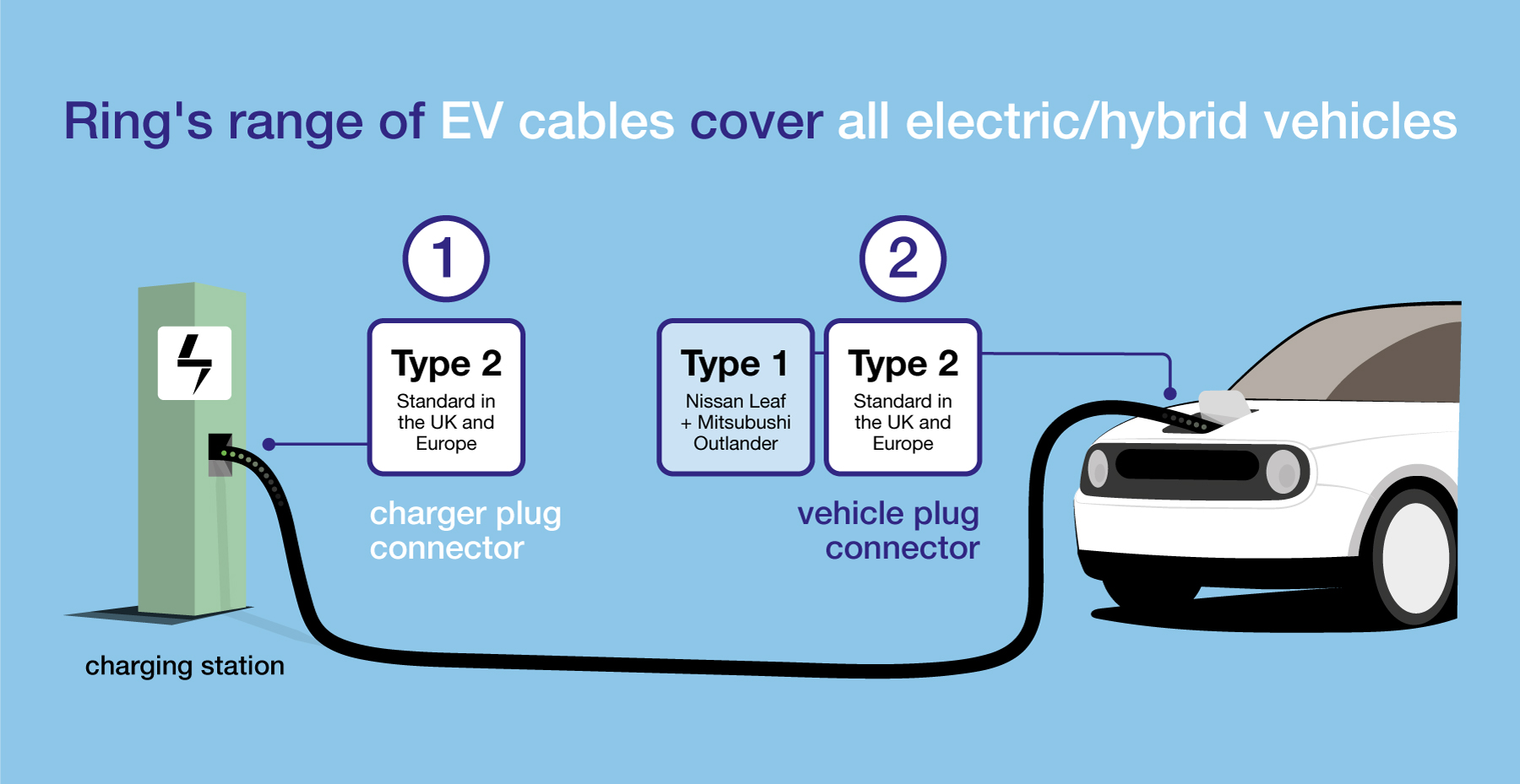
Do you have a type 1 or type 2 connector?
There are two connectors on an EV cable – one that plugs into the electricity source and one that plugs into your car.
1. Connecting to the charging station
All EV charging stations in the UK and Europe need a Type 2 connector. This is standard to all Ring EV Charging cables that are used with a charging station.
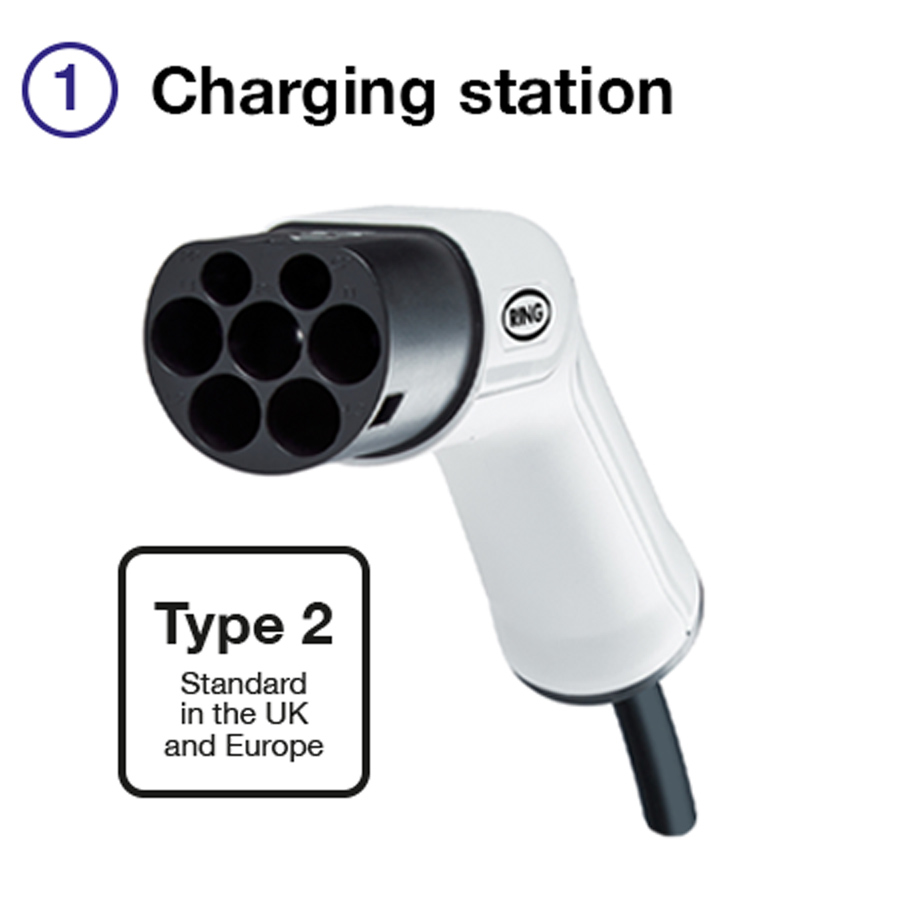
2. Connecting to your car
Your car will need one of these connectors:
TYPE ONE. Found on older EVs, or cars from America, Japan or Asia. They have 5 pins, and can only charge using a single phase (domestic) electricity supply.
TYPE TWO. Most newer EVs have a Type Two connector. These have 7 pins, are suitable for single and three phase charging (domestic and commercial) and have capacity for faster charging.
You need to make sure any cable you buy has the right connector to plug into your car.
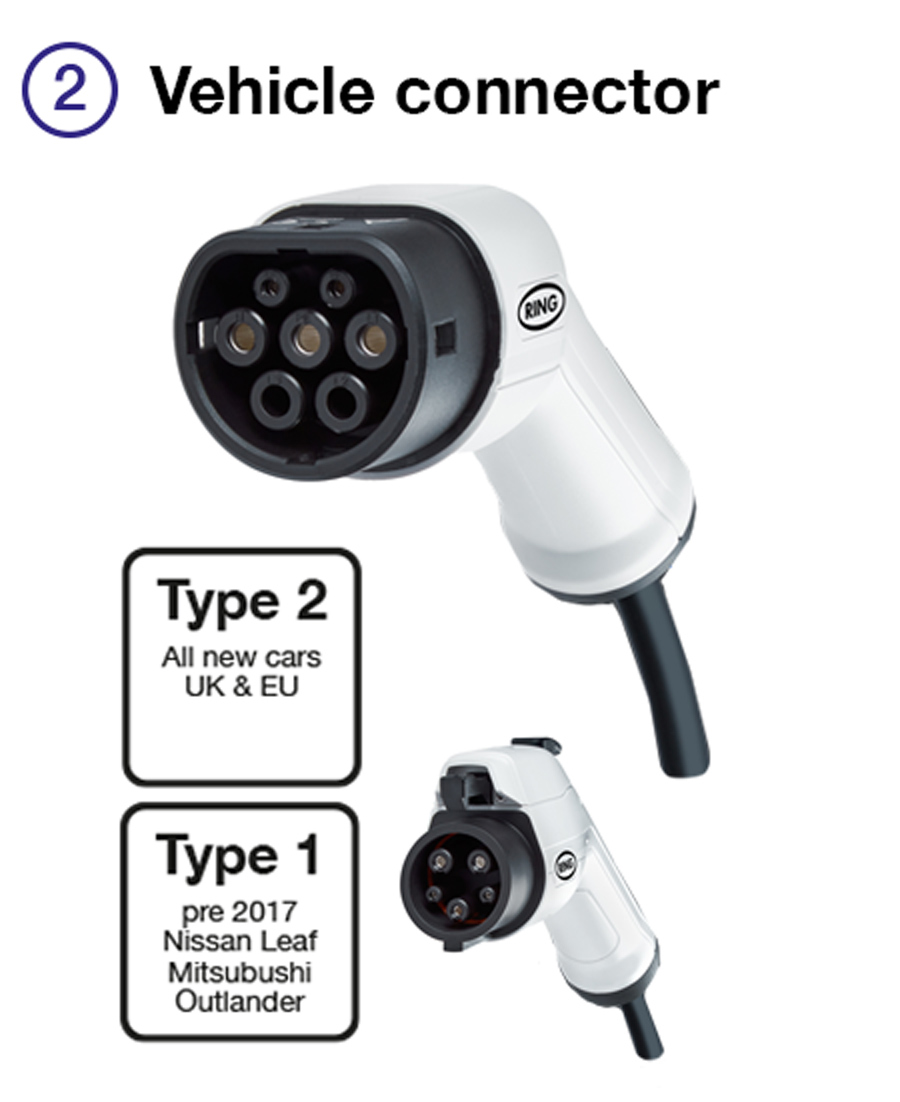
3. Which type of cable do you need?
Just as there are different connectors, there are also different types of cables for charging your EV. Different ampage cables will be compatible with different power sources, and will affect if you can use slow, fast or rapid charging.
When you’re choosing you cable, you need to consider if you want to be able to take advantage of the fastest charging options. If you would, then investing in a 32A cable will give you more options for charging. However, if you think you’ll be using low kW charging, you can get a cheaper 16A cable.

4. Which power supply will you be charging from?
Different charging points have different power supplies.
The domestic electricity supply most of us have at home is known as a single phase – this supplies 3kW through a standard domestic plug.
Commercial electricity supply is known as three phase, and is 22kW – making it around 3x faster to charge from a three phase power source. Public charging points often have three phase supply, meaning they have the ability to charge faster than an at-home charger.

How long will it take to charge my EV
This is an important question for EV owners. But the answer is: it depends on the type of car and size of battery, connectors, cable and power source available. Some modern EVs and charging points can recharge up to 80% in just 20 minutes – but this sort of charging is not widely available yet.
However: you can get an idea of typical charging times. In this example, we show the recharge times from various power sources for a KIA EV6 with a 77.4kWh battery.
Charging from empty - full
| Power Source | Charging Time | Recharge speed miles/hour | Typically found at |
| 3kW | 36 hours | 8 m/h | Home -domestic 3-pin plug |
| 3.6kW | 21 hours | 14 m/h | Home wallbox / Workplaces |
| 7kW | 11 hours | 26 m/h | Home wallboxes / Workplaces / Public Charging Points |
| 22kW | 7 hours | 40 m/h | Workplaces / Public Charging Points |
Charging from 20% to 80% at rapid charging sources
| Power Source | Charging Time | Recharge speed miles/30 min | Typically found at |
| 50kW | 60 min | 91/30 min | Public charging – rapid charge |
| 150kW | 20 min | 274/30 min | Public charging – rapid charge |
Charging at home
When you’re charging at home, you can use a standard 3-pin plug as your power supply. However, this takes a long time due to the amount of power the battery requires – as long as 36 hours for a larger vehicle. Plus, it can damage the plug socket if it is used for car charging over a long period of time. Instead, installing a charging wallbox is the best option, and will reduce the charging time considerably.
Most will supply alternating current (AC) at a maximum of 7.2kW, whereas a normal three-pin plug is limited to 3kW. These boxes are weatherproof, so can be installed outside, and you can also apply for a government grant for some of the latest smart wallboxes. Selecting the right cable for your wallbox is essential, so that you can make the most of the charging speed available.
To be able to use the faster 7.2kW at-home charging, you’ll need a 32A cable.
If you do need to charge from a 3 pin socket you can get a portable charger, which plugs directly into a standard 3-pin domestic plug – so if you need to recharge at a friend’s, no problem! Please refer to the portable charger section below.
Charging when you’re out and about
There are now over 18,000 electric car charging points across the UK: you’ve no doubt seen them in car parks near you. Many of these offer rapid charging using three phase electricity supply. Typically any charge point above 22kW will be direct power (DC) which will have an additional 2 pin connecter that works with your car connector. Most DC charge points will have tethered cables (please see below). Your cars battery management system (BMS) will determine if your car can take advantage the different rapid charge options. The Ring range of cables and portable chargers are designed for AC charging up to 22kW.
There are two types of charging points:
- Tethered. This type of charging point comes with a cable. This is handy, as you won’t need to have your own, but you’ll need to make sure it has the correct connector for your car before you can start charging.
- Untethered. This type of charging station does not have a cable included, so you’ll need to attach your own. Being ready with the right cable is essential.
Ring's range of EV cables cover all electric/hybrid vehicles and are durable and waterproof to deal with all types of weather and road conditions.
Portable Charging Cables
If you’re staying with friends or family, then your only recharging option may be a standard 3-pin domestic socket. So it’s handy to also have a Portable Charging Cable at the ready. These cables plug straight into a domestic plug socket, so no installation needed, and have an LCD screen to show charging progress. They will take longer to charge than from a wallbox or a station, but will be invaluable if you need to charge from a domestic socket.


 Free Delivery On Orders Over £25*
Free Delivery On Orders Over £25* Pay In Three Available Over £30
Pay In Three Available Over £30 Two Year Guarantee Included*
Two Year Guarantee Included*